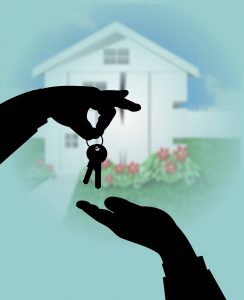 If you’re thinking of buying a property, it’s easy to overlook one of the most important considerations – whether it’s freehold or leasehold.
If you’re thinking of buying a property, it’s easy to overlook one of the most important considerations – whether it’s freehold or leasehold.
But there are many differences between the two and particularly if it’s leasehold, then there are some crucial factors to take into account.
What’s the difference between freehold and leasehold?
When you buy a freehold property, you own it outright which includes the land it’s built on. That means you’re responsible for maintaining the building and the land and all related costs. Most houses tend to be freehold.
With leasehold, you own the property – but not the land it’s built on for the length of time remaining on the lease. When that expires, the property is returned to its freehold owner.
In reality, most leasehold properties are sold before the lease expires because they’re usually long-term – often 90 or 120 years. Nevertheless, the length of time left on a lease still has important implications; we’ll come on to explore that.
As well as the cost of buying the property – you’ll also have to pay additional charges. These usually include ground rent and service charges, which are paid to the freehold owner landlord.
Many flats and maisonettes are leasehold.
What to look out for?
With freehold, the situation’s fairly simple. As well as budgeting for your monthly mortgage payments, you also have to factor in repairs and maintenance, as and when they’re needed.
With leasehold it’s more complicated.
For a start, you need to consider how long is left on the lease. Not only will this affect the sell-on value of the property, it also makes a big difference when it comes to getting a mortgage.
Leasehold properties decline in value as the term of the lease goes down and leases of zero years are effectively worthless. The general view is to approach leases of 80 years or less with caution and to get advice on your options. That said, you can negotiate an extension to a lease – provided you qualify to do so.
While you don’t own the land your leasehold property sits on, you still have to share the costs associated with it. This might include maintaining a communal garden, contributing to repairs of the roof on a block of flats, or paying electricity bills in foyer areas.
It’s usually your responsibility to repair and maintain the property itself, although you normally have to consult the landlord before carrying out work. That’s also the case if you want to make any ‘improvements’.
Support for leasehold properties owners
As you’ve seen, there are a number of considerations to take into account if you’re thinking of buying – or already own – a leasehold property. And it certainly pays to get some expert advice.
For instance, Powellslaw can help you negotiate an extension to your lease. This is particularly important if it has 80 years or less to run, although it’s wise to get advice well before this time.
If your landlord refuses to grant an extension, we can tell you if you’re eligible to challenge the decision in court and will help you deal with the legal proceedings.
Similarly, you might be entitled to take over the management of your leasehold property, or even buy it outright. In these circumstances, we can negotiate with the freeholder or bring legal proceedings to enforce these rights.
If you are looking for expert advice on any freehold or leasehold queries get in touch with our Property team by phoning 01934 623501 or email us on helpforyou@powellslaw.com

